LonelyBones Skate Collective is shredding up gender stereotypes–and skate parks–on the East Coast
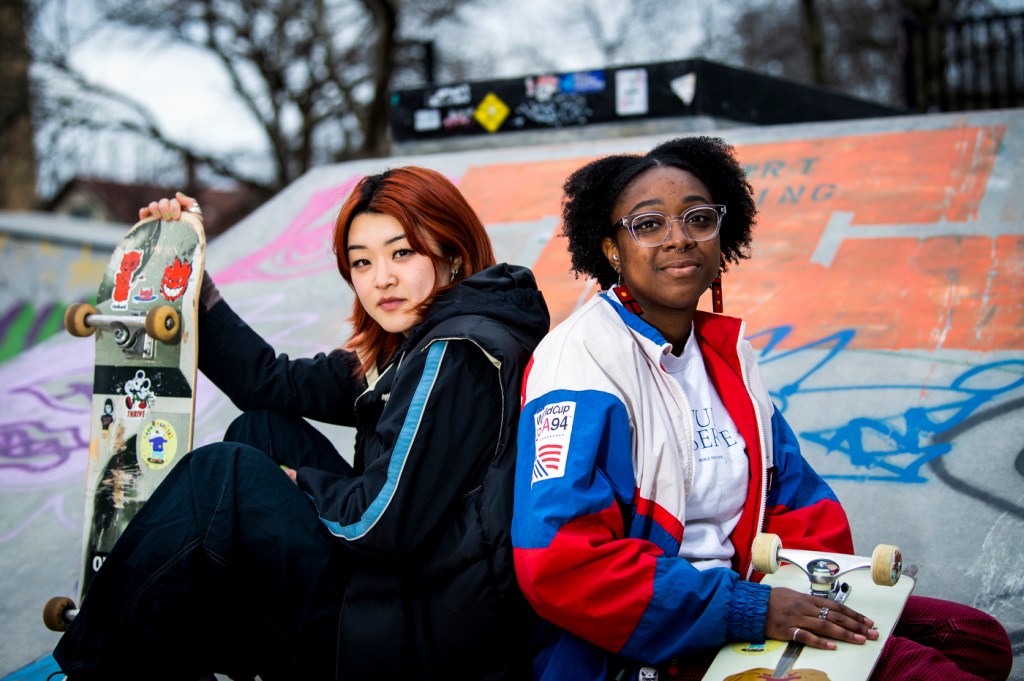
On an overcast day in mid-March—the kind that’s colder than one would hope for early spring in New England—a skate park in the Jamaica Plain neighborhood of Boston slowly filled with people on roller skates and skateboards. This wasn’t unusual for the park, conveniently situated right near a stop on one of the city’s public transit lines. What made these skaters unique is that none of them looked anything like Tony Hawk (no offense to the Birdman).
The skaters who convened on this particular evening were members of the LonelyBones Skate Collective, a diverse group of skaters of all levels of experience, founded by two Northeastern graduates.
“We’re a collective of nontraditional skaters, a community of people who maybe wanted to learn how to skate when they were kids, but didn’t have the chance,” says Claire Lee, one of the group’s founders, and a 2021 graduate who majored in bioengineering and math at Northeastern. “To some degree, we all have the same shared experience of wanting to do something but feeling like we weren’t welcome.”
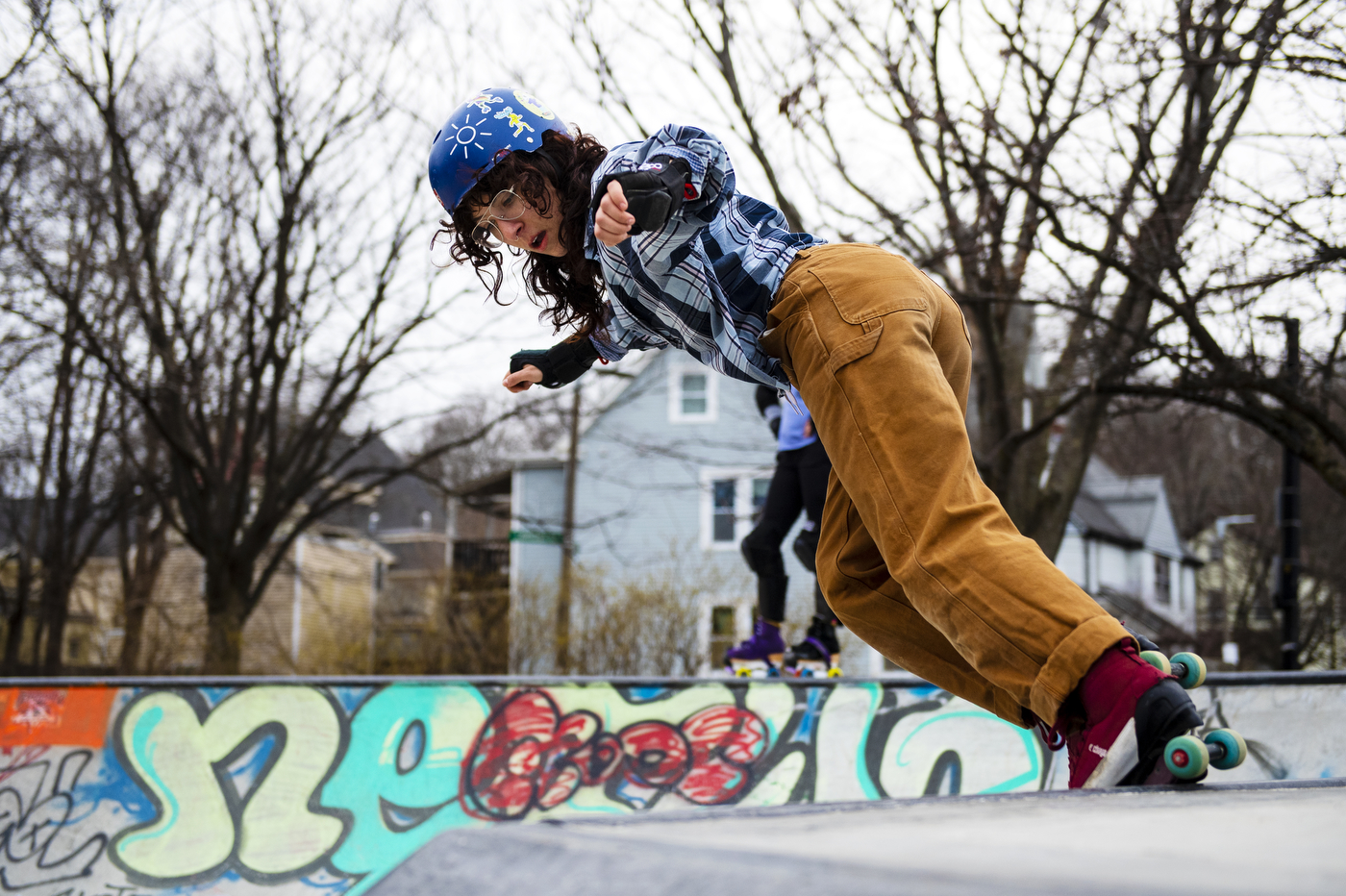
It’s not just a matter of perception; a majority of skateboarders in the United States are white, straight, and male, according to a number of surveys. A 2016 study published in the Society of Sport Journal used a decade of research at skateparks and other skateboarding sites throughout the U.S., United Kingdom, Canada, and New Zealand to determine that 83 percent of all frequent skaters were male.
“It is difficult to overstate how much skateboarding remains an intensely masculine gendered activity,” the researchers wrote.
That may be changing, albeit slowly.
A 2019 study by researchers at the University of Southern California and the Tony Hawk Foundation found that 75 percent of skaters are male, 72 percent are straight, and 54 percent are white.
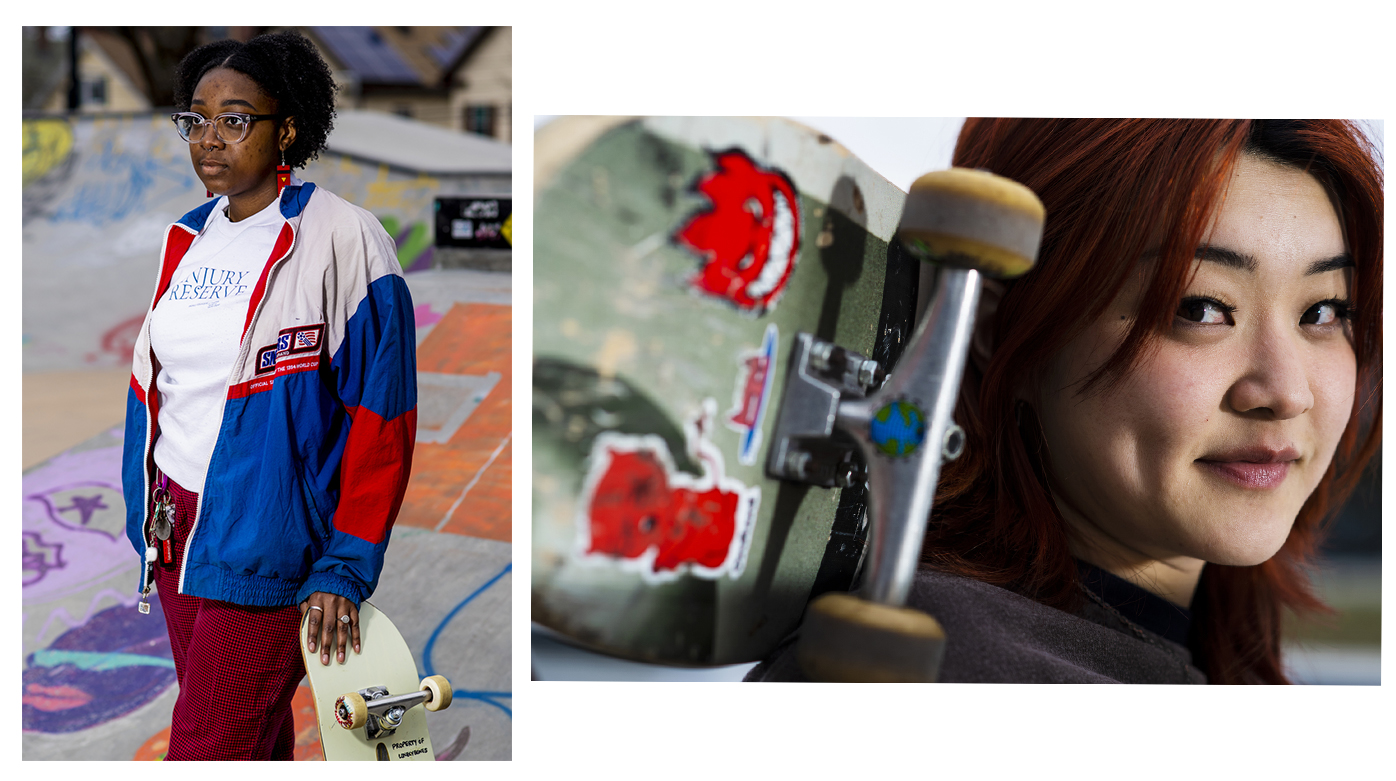
Lee, along with Rayven Tate, a mechanical engineering student at Northeastern who also graduated in 2021, seeks to carve out a fun, welcoming space for all the skaters who aren’t male, straight, or white.
Thus was born LonelyBones Skate Collective—so named because it represents a place for people who might otherwise feel lonely in skate parks. The group hosts meetups once a month (except during the winter months) and invites newcomers and experienced skaters alike to join in a day of camaraderie and shredding. Usually 80 or more people show up, and closer to 100 in the summer, Lee and Tate say.
An organic kind of community forms each time, Tate says. People will bring music, snacks, and artwork to share and sell, while more experienced skaters will teach newcomers. Everyone supports each other’s attempts to learn something new, whether that means nailing a flip or simply getting on the board without falling.
“Being around other like-minded people makes me feel way more comfortable in that space; it’s a familial feeling almost,” Tate says. “I’m more inclined to try a new trick when I’m not worried that people will judge me if I fall. Here, if I fall down, my friends are right there to pick me up and tell me to try it again.”
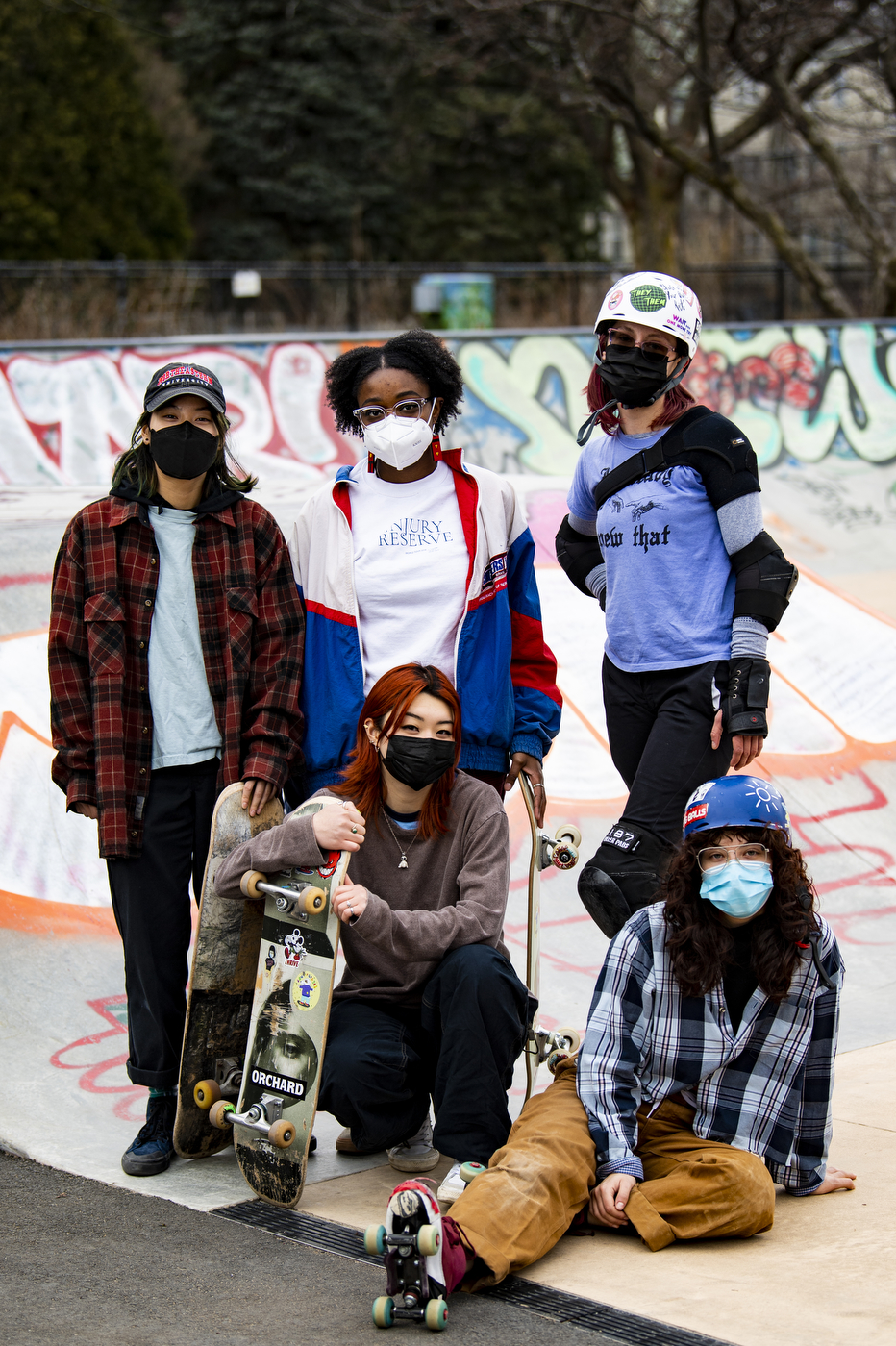
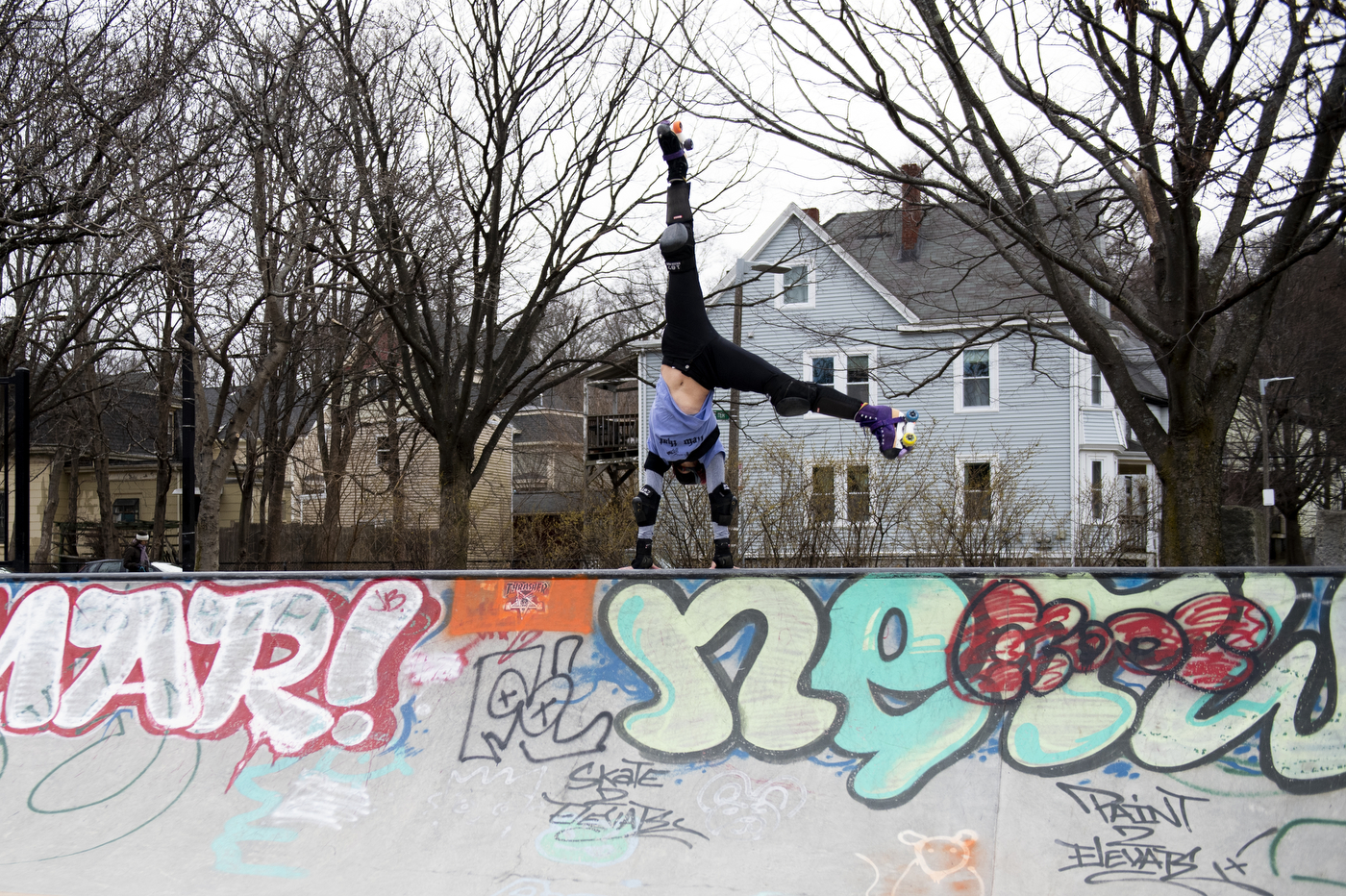
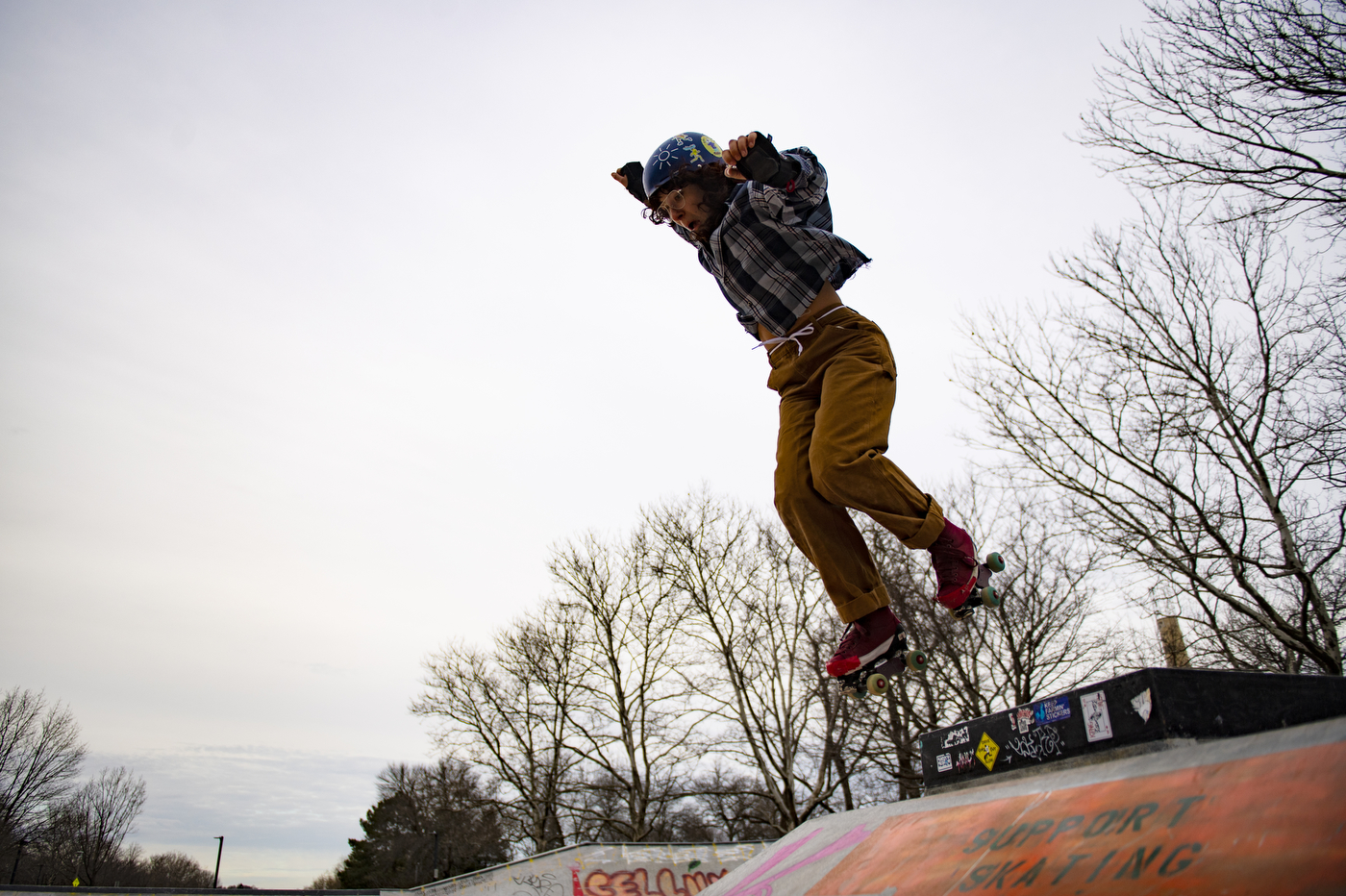
At the impromptu meetup in Jamaica Plain, a group of LonelyBones skaters were cheering each other on encouraging each other to stick a landing or pull off an elusive trick. Shouts of “You got this!” and “Once more, get up there!” formed a certain kind of melody over the rhythmic whir and thud of wheels on concrete.
Though they both hold down demanding full-time jobs—Tate as a software engineer at Capital One and Lee as a bioengineer at SQZ Biotech—the founders have big plans for the skate collective. Last summer, they won a grant from Skate Like a Girl, a nonprofit organization based in Seattle, that enabled them to attend leadership workshops for “grassroots skateboard community leaders who identify as queer, trans, and/or women,” according to program information.
The program is ongoing, and enables Tate and Lee to learn more about how to formalize their collective, if they want, with basics in the legal, business, and financial underpinnings of nonprofit organizations. In September, they’ll fly out to Seattle to participate in Skate Like a Girl’s biggest event of the year, Wheels of Fortune.
Tate and Lee have plans to grow LonelyBones Skate Collective beyond Boston, envision offshoots all along the East Coast.
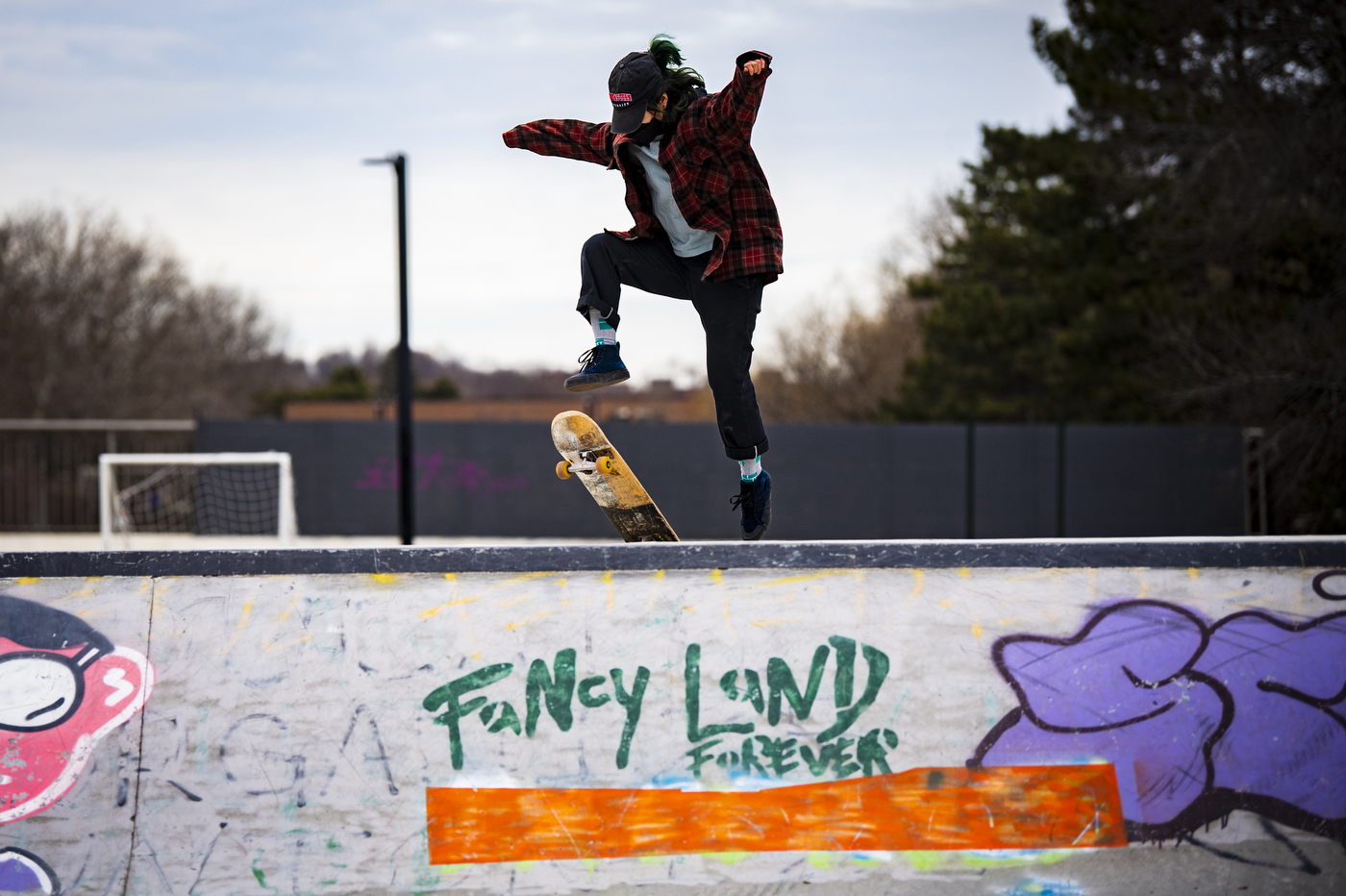
“I had no idea, when we started, how much the East Coast needed a group like LonelyBones,” Lee says. She and Tate were inspired by nontraditional skate collectives that have popped up in the West Coast. But, they realized they needed to tailor an experience that reflects East Coast—and particularly New England—skate culture. That means skating on cobblestones, through tightly-packed cities, in colder weather—in short, in conditions that deviate from the kind of golden, year-round conditions in the West.
No matter how big they get, though, Tate and Lee plan to stay true to their Boston roots. They’re considering starting a skate scholarship for gear and lessons for elementary-school-aged skaters (or would-be skaters), and expand opportunities for local artists and artisans.
“This is one of the most rewarding things I’ve ever done,” Tate says. “I knew that I would enjoy doing this work, but it still surprises me every time how fulfilled I am by it.”
For media inquiries, please contact media@northeastern.edu.





